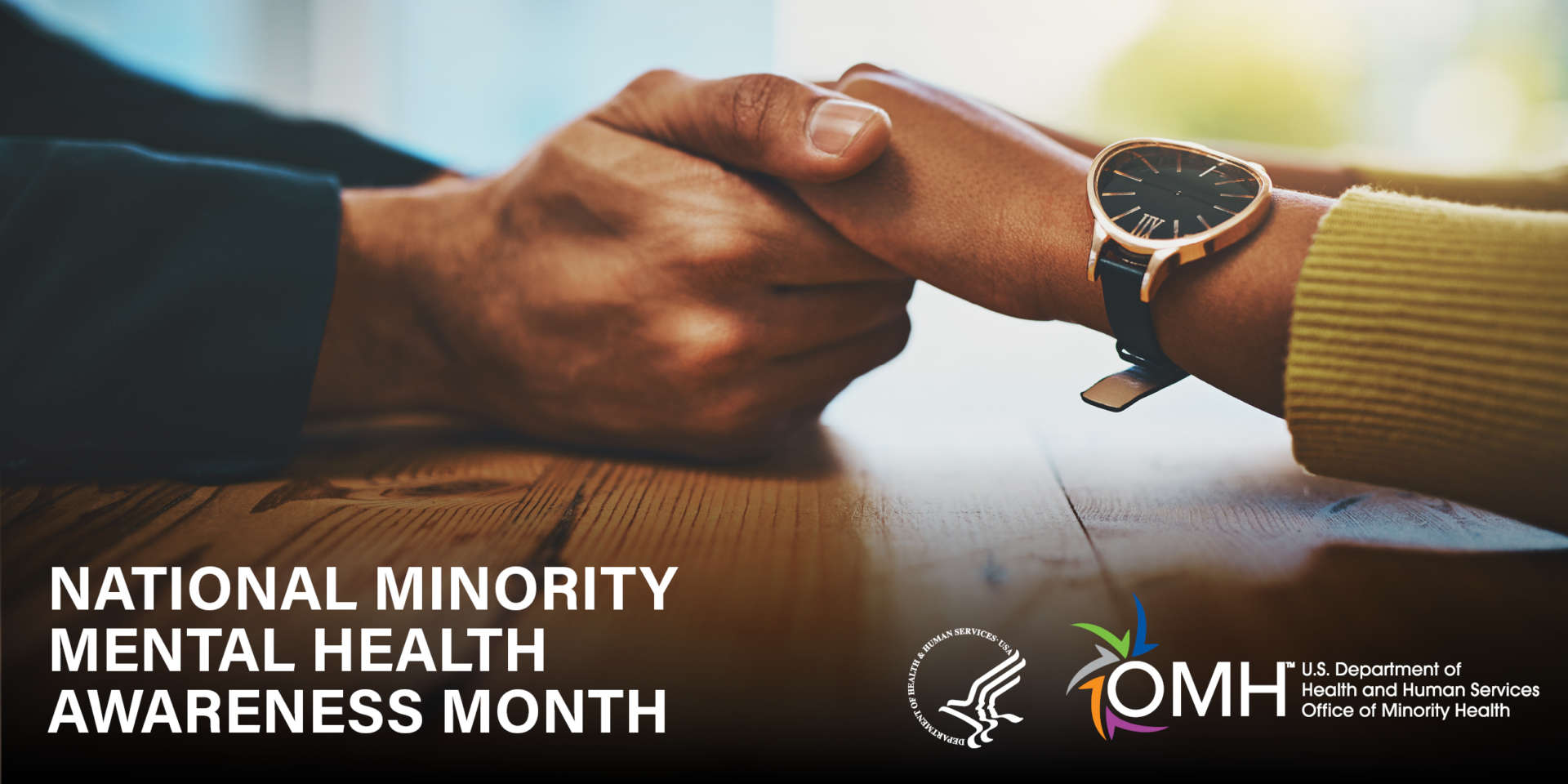July is Minority Mental Health Awareness Month and Thriving Mind is here to help. Go to our Get Help page here for resources for mental health and substance use for adults and children and youth.
Despite advances in health equity, disparities in mental health care persist. The Agency for Healthcare Research and Quality (AHRQ) reports that racial and ethnic minority groups in the U.S. are less likely to have access to mental health services, less likely to use community mental health services, more likely to use emergency departments, and more likely to receive lower quality care. Poor mental health care access and quality of care contribute to poor mental health outcomes, including suicide, among racial and ethnic minority populations.
According to the Substance Abuse and Mental Health Services Administration (SAMHSA) and the CDC:
- In 2017, 10.5% (3.5 million) of young adults age 18 to 25 had serious thoughts of suicide including 8.3% of non-Hispanic blacks and 9.2% of Hispanics.
- In 2017, 7.5% (2.5 million) of young adults age 18 to 25 had a serious mental illness including 7.6% of non-Hispanic Asians, 5.7% of Hispanics and 4.6% of non-Hispanic blacks.
- Feelings of anxiety and other signs of stress may become more pronounced during a global pandemic.
- People in some racial and ethnic minority groups may respond more strongly to the stress of a pandemic or crisis.

